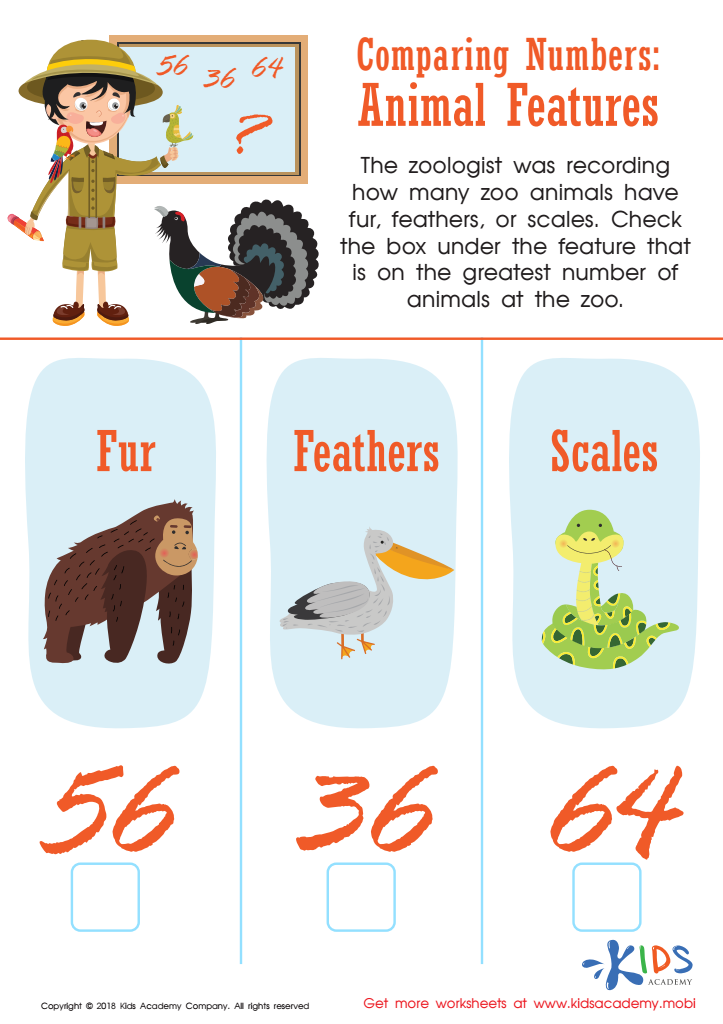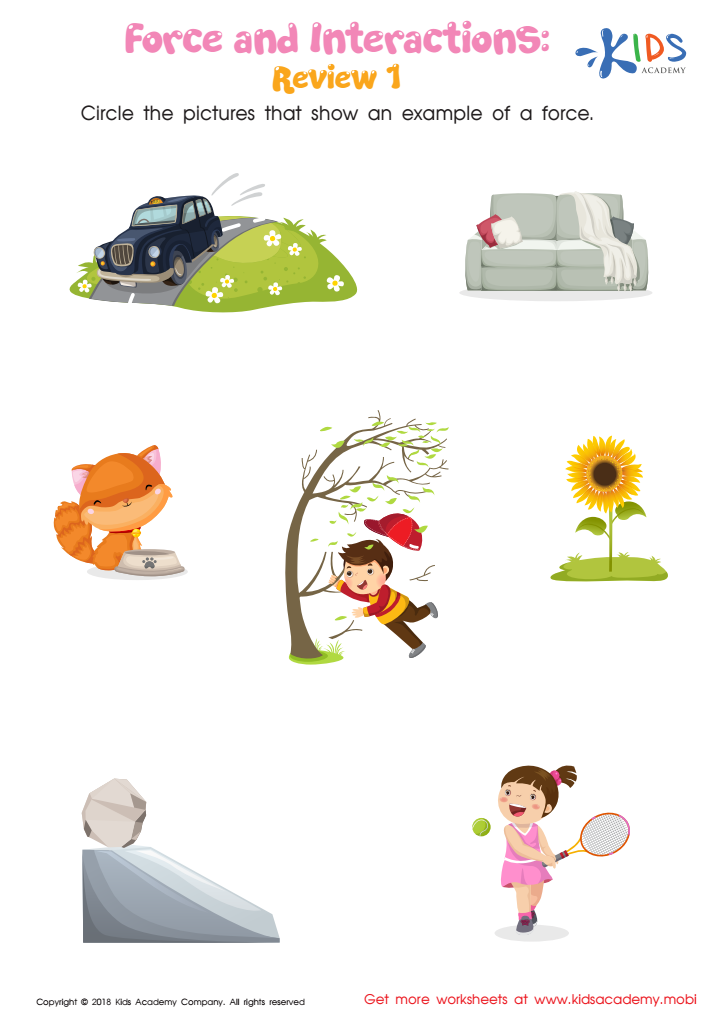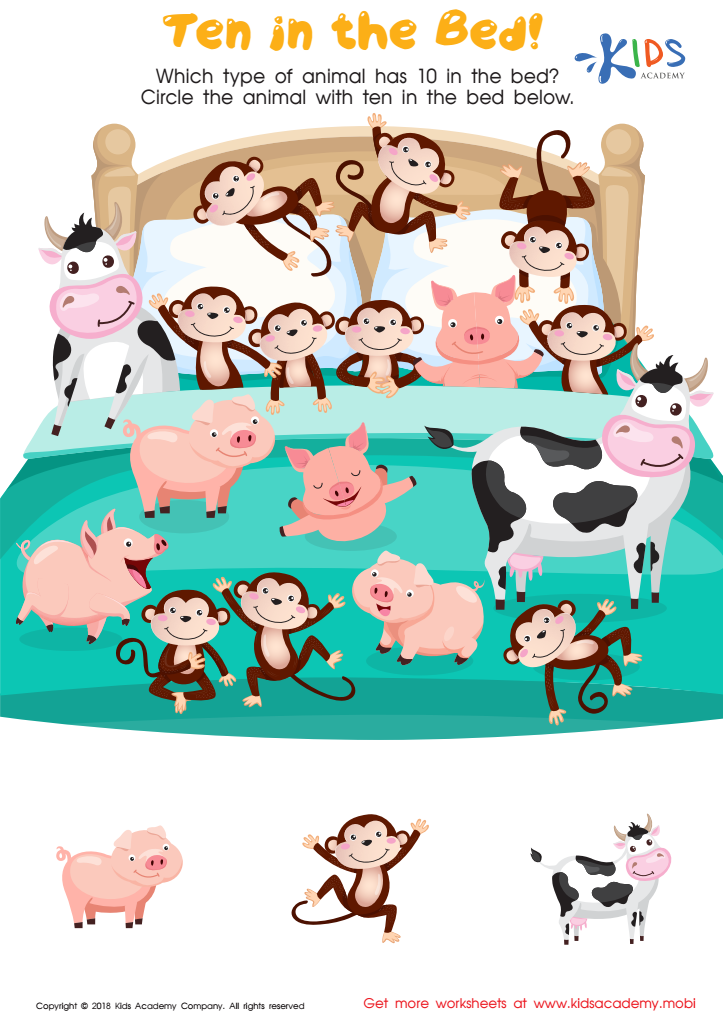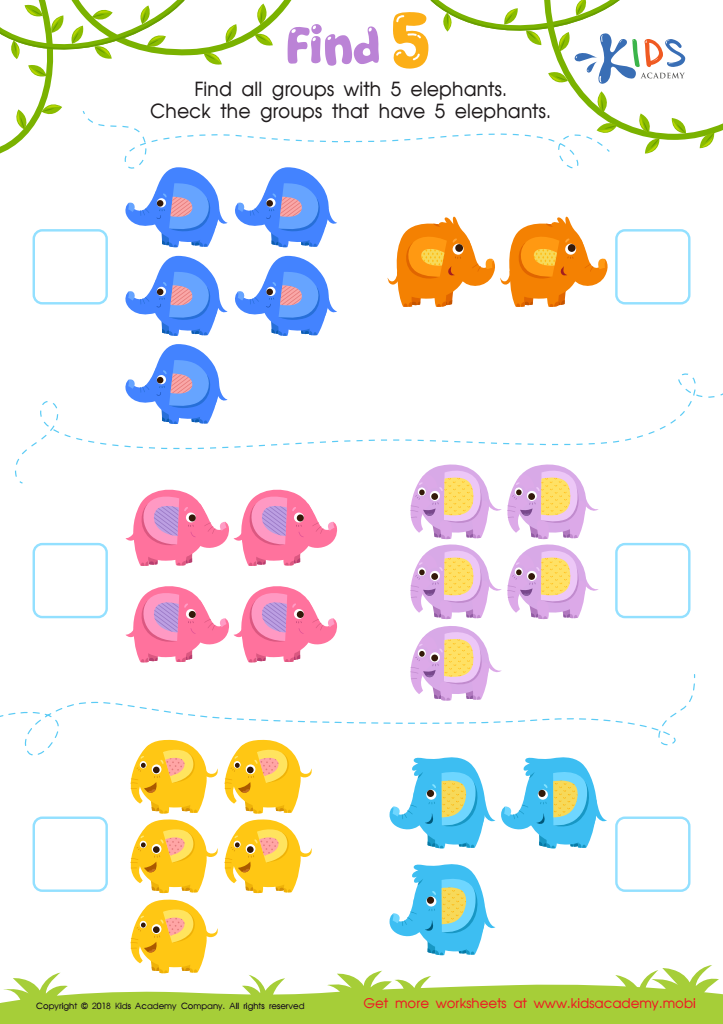Number Recognition Normal Science Worksheets for Ages 4-7
5 filtered results
-
From - To
Jumpstart young mathematicians’ learning journey with our Number Recognition Normal Science Worksheets for Ages 4-7. Specially designed for preschoolers and early grade students, these engaging worksheets blend fun with fundamental math skills, helping children identify and understand numbers. Through stimulating activities, kids develop key recognition abilities, paving the way for future math success. Ideal for both classroom environments and at-home practice, our worksheets support parents and teachers in building a solid foundation in numeracy. Discover a variety of interactive printables tailored to captivate young minds and encourage a love for learning numbers from an early age.


African Wildlife: Giraffe Worksheet


Animal Features Worksheet


Force and Interactions: Review 1 Worksheet


Ten in the Bed Worksheet


Find 5 Worksheet
Number recognition is a foundational skill that sets the stage for a child's future success in mathematics. For children aged 4-7, grasping this concept is crucial as it significantly supports their cognitive development and everyday problem-solving abilities.
When children recognize and understand numbers, they can begin to perform basic arithmetic operations like addition and subtraction. This early competency forms a bedrock for more complex math topics that they will encounter in later grades. Beyond academic success, number recognition aids in developing logical thinking and reasoning skills, which are critical for personal decision-making and tasks such as telling time, cooking, and managing money.
Parents and teachers play pivotal roles in nurturing this skill. Engaging kids in playful activities, like counting games, puzzles, and interactive apps, can make learning numbers enjoyable and more effective. Moreover, recognizing numbers in a variety of contexts—such as on clocks, in books, or during shopping—helps children see the practical relevance of math in everyday life.
Early mastery of number recognition boosts confidence, reduces math anxiety, and fosters a positive attitude towards learning. Establishing these skills at a young age builds a strong academic foundation, enabling children to approach more advanced contexts and real-world challenges equipped with robust numerical understanding.
 Assign to My Students
Assign to My Students



















